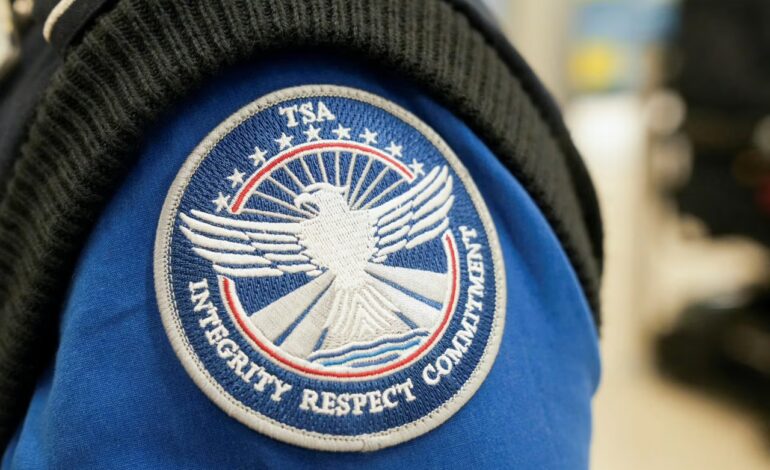WASHINGTON, D.C. — The Department of Homeland Security (DHS) announced earlier this month that it has officially terminated the Quiet Skies program, a once-secretive TSA passenger surveillance initiative that federal officials now say failed to prevent a single terrorist attack in its 15-year lifespan.
Quiet Skies, first launched in 2010 under the Obama administration, aimed to identify and monitor travelers deemed “suspicious” despite not being on any formal watchlist. These individuals were often tracked by undercover federal air marshals on domestic and outbound flights based on vague behavioral indicators or connections to persons of interest.
On June 5, DHS Secretary Kristi Noem described the program as a “political rolodex of the Biden Administration”, adding that it had been “weaponized against its political foes and exploited to benefit their well-heeled friends.” The program, which cost approximately $200 million annually, was shut down following a departmental review that uncovered both operational failures and allegations of political misuse.
Although Secretary Noem blamed the Biden administration for politicizing the program, Quiet Skies was expanded and continued under both Democratic and Republican administrations — including throughout the Trump presidency. Internal reviews and lawsuits against the program also emerged during Trump’s term, but no action was taken to shut it down until now.
According to DHS, high-profile individuals — including allies of former government officials — were removed from the watchlist, while political critics and activists were subjected to increased scrutiny. Among the most notable incidents under review is the case of Senator Jeanne Shaheen’s (D-NH) husband, who was reportedly taken off the list following a single phone call.
Civil liberties concerns
The program drew widespread criticism from civil liberties groups throughout its existence. Whistleblowers and watchdog organizations questioned both its efficacy and ethics.
Former federal air marshals described the system as vague, invasive and unproductive. A 2020 inspector general report echoed these concerns, highlighting a lack of transparency for those being monitored.
“From its inception, Quiet Skies unfairly targeted travelers from Arab and Muslim communities, and did nothing to make the country safer,” said Nabih Ayad, chairman of the Arab American Civil Rights League (ACRL) and a civil rights attorney who has challenged federal watchlists in court.
Ayad stressed that the impact of programs like Quiet Skies and the broader Terrorist Screening Database extends well beyond airport security.
“This isn’t just about air travel,” he said. “People are detained in foreign countries, denied loans and humiliated at borders because of what’s shared from these lists. It directly threatens people’s ability to work, travel and support their families.”
He added that the U.S. government shares watchlist data with up to 500 private corporations, a practice that has led to flagged background checks and lost economic opportunities. For Arab Americans — especially immigrants and those with family abroad — the consequences are often personal and repeated.
“People feel targeted just for their culture or religion,” Ayad said. “I’ve had clients stop bringing laptops or even use burner phones because they know every trip means hours of questioning and dehumanization at the airport.
“It’s a serious violation of due process and the protections we value in this country,” he emphasized.
Ayad’s remarks reflect a broader set of concerns long raised by legal advocates: that government surveillance programs disproportionately harm vulnerable communities while offering little in return. Quiet Skies became a symbol of the expanding — and often opaque — post-9/11 security state.
National spotlight and public backlash
While Quiet Skies operated largely outside of public view, it drew national attention in 2018 when media investigations revealed the extend of in flight surveillance on ordinary Americans, including veterans, journalists and even federal employees, often without their knowledge or consent.
Jana Winter’s front-page report in the Boston Globe, titled “Welcome to the Quiet Skies”, revealed how federal air marshals were secretly following U.S. citizens on domestic flights and recording behaviors as mundane as fidgeting, using a phone, visiting the bathroom and even changing clothes during travel.
The report sparked public outcry and raised urgent questions about civil liberties and oversight. For advocates, it confirmed that government surveillance was quietly expanding in ways that exerted unconstitutional profiling under the guise of national security.
What comes next
The termination of Quiet Skies also comes amid broader conversations about the use of government surveillance tools and their impact on civil rights. DHS officials said TSA will now shift focus back to core aviation security responsibilities, including threat detection at airport checkpoints and enforcing the recently implemented Real ID requirements for air travel.
”No matter which party was in office, this program did nothing to protect Americans,” Ayad said. “It only served to harass and intimidate lawful residents and citizens. We welcome its end — and urge Secretary Noem to also end the broader, long-abused terrorism watchlist.”
With Quiet Skies now over, advocates say the real test will be whether its end marks a turning point — or simply a rebranding of surveillance under a different name. As the post-9/11 national security apparatus continues to evolve, the end of Quiet Skies raises questions about what tools remain in use, and who they ultimately protect.






Leave a Reply